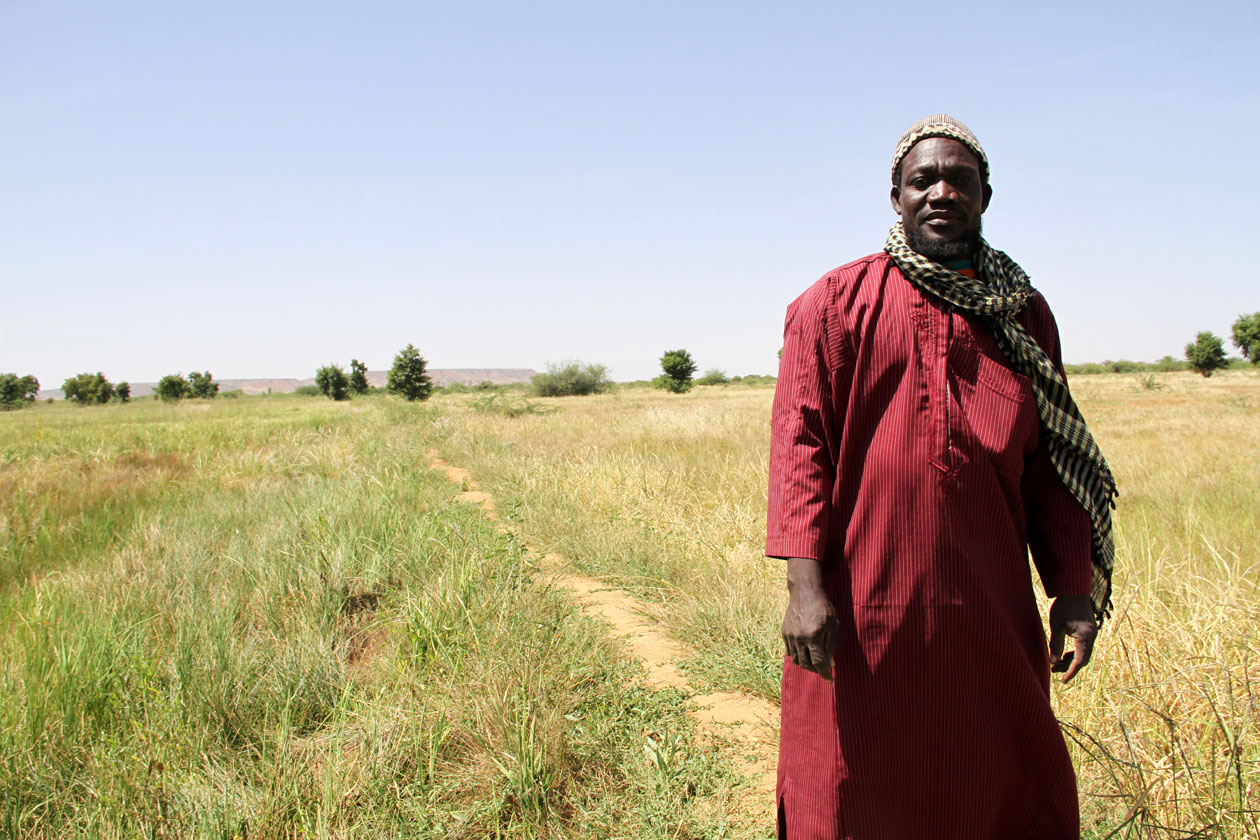The Decentralizing Climate Funds (DCF) project supports local communities in Mali and Senegal to identify and invest in adaptation strategies that can best ensure their resilience against climate change.
NEF and its partners are working with local, regional, and national governments to develop the financial and planning systems that will ensure that climate funds reach local communities and support investment in locally prioritized resilience projects.
Over three years, NEF will work with local governments to establish 6 Climate Adaptation Funds (CAF) of £500,000 (about 445 million CFA Francs) each. The CAFs will finance community-prioritized, public good investments that build resilience to climate change. Communities will identify and prioritize adaptation strategies through inclusive and participatory processes.
Building resilience and adaptation to climate extremes and disasters (BRACED)
DCF is an action-research and advocacy project supporting communities in Senegal and Mali to become more resilient to climate change. It is part of the UK-government funded program, Building Resilience and Adaptation to Climate Extremes and Disasters (BRACED). The Near East Foundation leads the project with partners Innovation, Environnement et Développement en Afrique (IED Afrique) and the International Institute for Environment and Development (IIED).
Project Vision
More effective climate adaptation planning and finance by local governments in Mali and Senegal will improve communities’ resilience to climate change.
The Need
Climate change is exacerbating already challenging environmental conditions in Sahelian communities, which overwhelmingly depend upon agriculture and natural resources to sustain their livelihoods. Women, girls, and other vulnerable and marginalized populations – who often lack a sufficient voice in decisions that affect their wellbeing – are at heightened risk of falling deeper into poverty as temperatures rise and rainfall grows more variable across the region.
International climate finance is increasingly available to assist developing countries in mitigating the impacts of climate change. Presently, climate adaptation funds in Mali and Senegal are channeled directly to national authorities or to non-governmental organizations (NGOs), despite the fact that it is local governments that have primary authority over natural resources management and adaptation. National funds are drawn down slowly and may be invested in strategies that do align with local priorities.
The status quo is problematic for two reasons. First, this approach fails to recognize and leverage strategies that communities have developed to manage risks associated with environmental variability – a norm in the Sahelian regions of Mali and Senegal. And, investments in strategies that do not align with local priorities may undermine existing resilience strategies.
The project will institutionalize change within existing government systems – marking a significant departure from existing systems and empowering governments to sustain adaptation planning and finance mechanisms beyond the life of this project.
How the Project Works
The process of decentralization in both Mali and Senegal, which is still ongoing, provides a structure of local government that can be built upon to ensure that decision-making and access to climate funds is in the hands of those most directly affected by climate change and best able to identify strategies for building local resilience.
The project will help catalyze decentralized control over climate funds through the development of project climate adaptation funds and inclusive planning processes. It will test the evidence that local control can and does work and will encourage national policymakers to take local adaptation strategies into account and invest in the development of their local governments’ institutional, technological and financial capacity.
Local climate adaptation funds. Local governments will be given discretionary authority over a devolved Climate Adaptation Fund (CAF) with an initial value of £500,000 (445 million FCFA) per fund. The CAFs will finance community-prioritized, public good investments that help improve communities to be more resilient to climate change. The funds will be managed in a transparent, accountable, and cost-effective manner. They will also be consistent with public finance policy, complementary to local governments’ existing budgets and capable of drawing down and managing climate finance from national climate funds and other sources of climate finance.
Community-prioritized investments. CAF investments will be prioritized through inclusive community consultations and will be informed by local resilience assessments. Committees for adaptation planning will be set up at the local district level (Communes); they will be -inclusive and ensure differentiated representation of vulnerable individuals. The committees will adopt a systemic (as opposed to a sector-based) approach.
The project will also ensure that people have greater access to – and capacity to use – climate information that will improve planning and responses to climate extremes. Following the prioritization of investments by the committees, local government will implement locally-approved resilience projects through a public procurement process that builds the capacity of local governments, civil society organizations and the private sector to manage construction and operation of public good investments.
Evidence and learning. To assess how climate change adaptation and development investments can strengthen local people’s resilience to climate extremes (differentiated by gender, age, wealth), the project will establish and institutionalize information systems and monitoring frameworks, including the Tracking Adaptation and Measuring Development (TAMD) methodology. Lessons drawn from the implementation of this project will be gathered, published and widely disseminated in international and national networks and made available online.
Engagement with policymakers. To ensure that the evidence from this project can be used effectively by policymakers, the project will build relationships with relevant national and international institutions and decision-makers to share findings from the project. Policymakers will also be involved in a national-level advisory committee in each country to provide input to the project on an ongoing basis. Lessons will also be shared between stakeholders in the two countries as the activities are implanted. The project will seek follow-on funding for these local funds from the Green Climate Fund (GCF) and other development partners.
Project Location
Project activities are implemented in three Cercles in the Mopti Region in Mali (Koro, Douentza, and Mopti) and in four Départements in the Kaffrine Region of Senegal (Koungheul, Kaffrine, Birkilane and Maleme Hodar).



